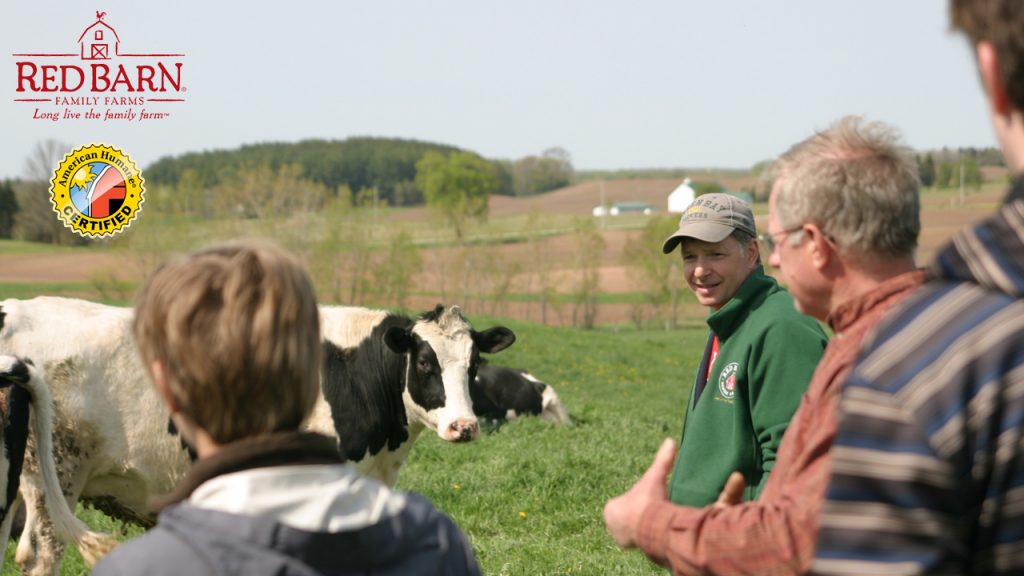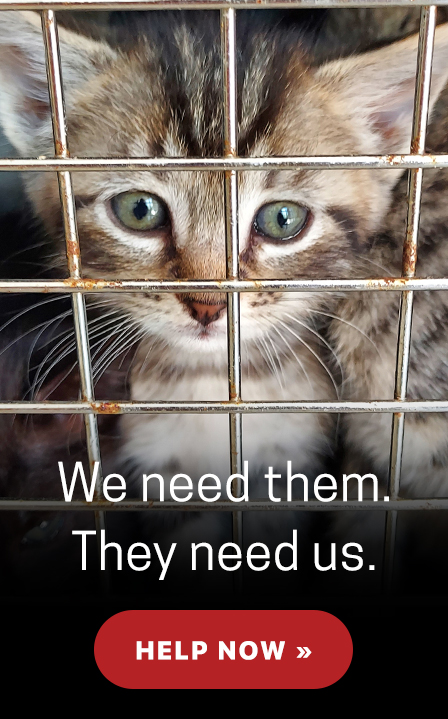American Humane was founded in 1877 on the belief that ALL animals – those in our homes, those in service to our country, and those on our farms and ranches – deserve humane treatment.
In fact, we’ve been working for more than 140 years to improve the welfare of farm animals and created the country’s first largest, and most trusted farm animal welfare program in the country – the American Humane Certified™ program.
To help consumers know which producers have committed to demonstrably good welfare and shine a spotlight on those who put food on our tables while raising animals right, American Humane regularly features our American Humane Certified producers and their enlightened commitment to the welfare of animals in agriculture.
This week, we are profiling Red Barn Family Farms.
Tell us a little bit about Red Barn Family Farms and its history.
Red Barn Family Farms produces premium milk and award-winning cheese. Our company was founded in 2008 with a mission to help preserve excellent small family dairy farms in Wisconsin. Not only did we see the value of these farms to our state’s economy and ongoing heritage of excellence in dairy farming, we also valued the individualized style of animal husbandry that was possible with this style of small-scale farming. We hand-select small family farms that meet “The Red Barn Rules”, stringent standards of animal health and care and milk quality. Then, in order to keep these farms viable into the future, we use a pay scale, above market value, that rewards and incentivizes excellence. On Red Barn farms, the owning family members do the majority of the milking, feeding and care of the animals. The average herd size is 55 cows. Animals are known and cared for by name and live longer lives than the industry average. Animals have daily access to the outdoors, weather permitting. Each year, our farms undergo an audit and certification by American Humane. Currently, nine small family farms produce milk for Red Barn Family Farms. Our goal is to continue to grow sales so that we can find a home for the milk of many more small family farms.
Why does Red Barn Family Farms believe animal welfare is important?
We believe that the animals that populate our agricultural systems each have an inherent, moral value. We believe that we, as farmers and food providers, bear responsibility to each individual animal. We believe that providing a high level of animal welfare fulfills our inherent responsibilities as humans. In addition, we believe there is an intrinsic link between the health and well-being of animals and the quality of the milk that they produce.
Some companies are self-reporting welfare outcomes. Why did you decide it was important to work with an independent third party?
Our own innovative “Red Barn Rules” hold our farms accountable to a stringent set of standards for animal health and care and milk quality. However, we thought a third-party audit/ certification from American Humane would provide additional validity to the level of animal care and well-being on our farms.
What about American Humane certification do you value most?
We value the fact that an independent auditor actually comes out to our farms and assesses the well-being of each animal.
How have your customers responded to your earning the American Humane Certified seal and how does it set you apart from other producers in your field?
Since our company was founded in 2008, we have seen an increasing demand for transparency and accountability in food production and agricultural practices. Unfortunately, we have also seen an increase in marketing strategies that cater to that demand without necessarily being substantiated. The American Humane Certified seal on our labels assures customers that they are buying a product that has been produced in an ethical, sustainable way.


